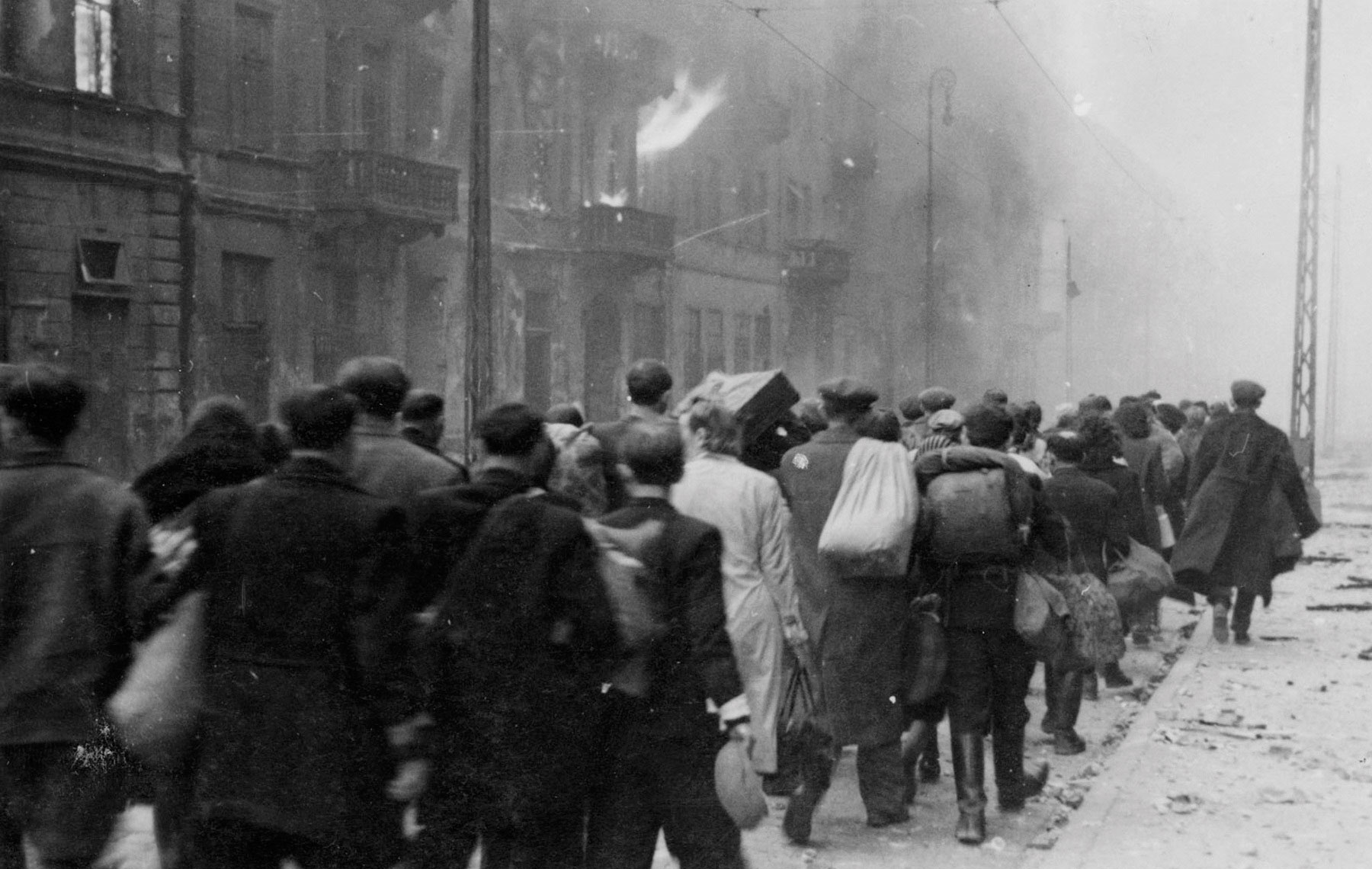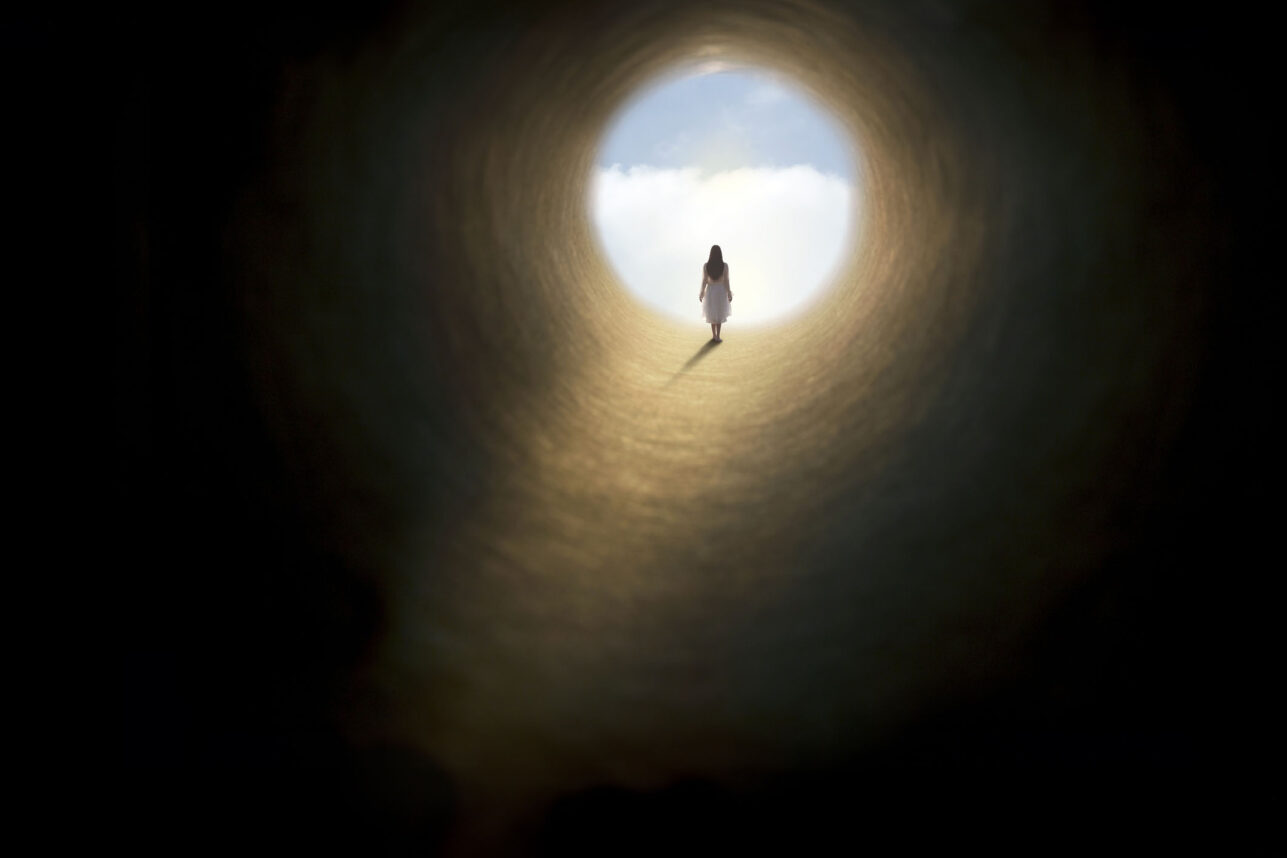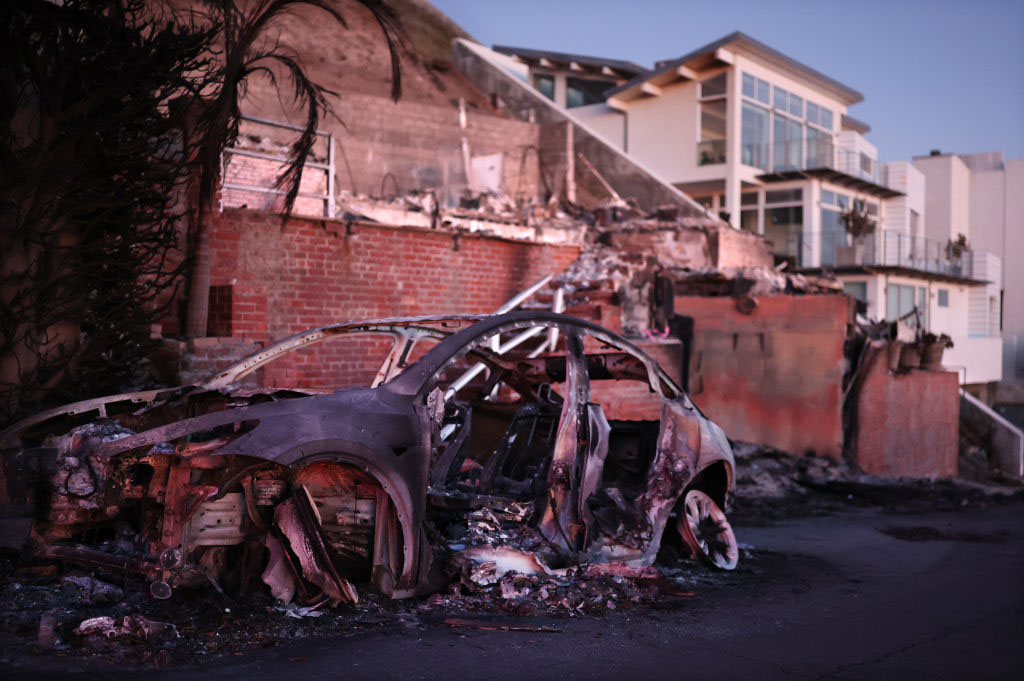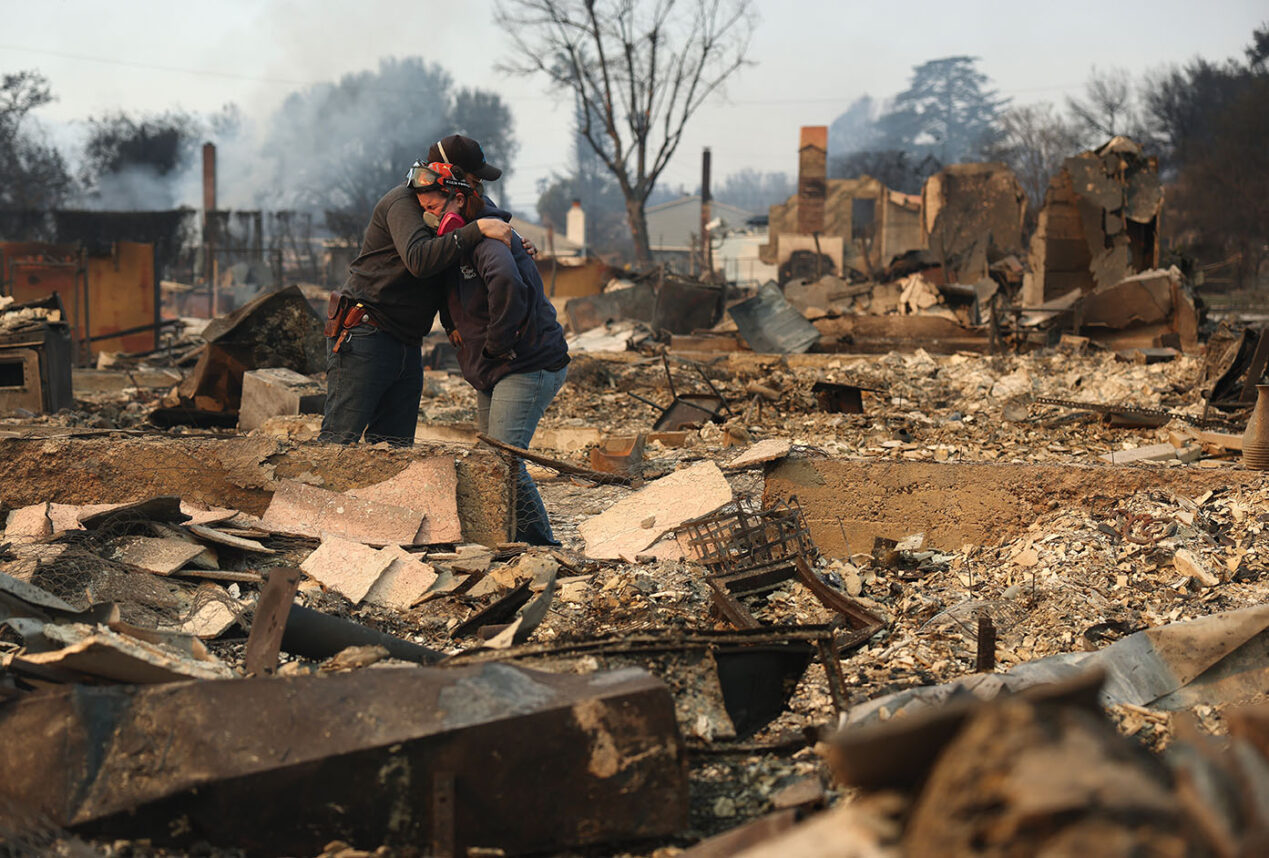
In every national setting throughout our history as a Diaspora people, we Jews have faced “a moment of truth” when our political status changed. This disruptive moment occurred either because of a government edict expelling Jews, or by societal changes that led to mobs threatening and at times killing Jews. Living amid such uncertain conditions defined our political status.
When do we know that a country is no longer safe for Jews?
My own family history of more than 300 years was tied to Germany. My grandparents believed that because of their deep family roots in and loyalty to the German state, they would face no personal threats with the rise of Nazism. They thought their trust would be affirmed by the fact that my grandfather had received the Iron Cross medal for his German military service in World War I. His patriotism defined his standing. But Hitler reminded Jews that there would be no security, despite their deeply rooted ties to Germany or, for that matter, any other country in which they resided.
In many societies in which Jews have lived, having to decide whether to stay or leave was forced upon them by events totally outside of their control. Expulsions, inquisitions, decrees and pogroms determined their status and fate. In a survey of Jewish history, one finds examples of single events — such as the emergence of key political figures or the presence of a new social, political or economic condition — that altered the status and well-being of Jews in particular communities or societies. In the medieval period, myths about Jews triggered actions against them, whether we reference the Blood Libel or the false accusations of their responsibility for the Black Death, or bubonic plague. The Crusaders in their pilgrimages to Jerusalem would destroy entire communities of European Jews.
For most of our history, Jews were a stateless Diaspora. We were a people without a physical homeland and frequently without options. This condition left us bereft of a safety net, a permanent place with which we could identify. Over the centuries, the very idea of a homeland would inspire our sages and poets to envision what Zion represented. The idea of a physical act of returning was a powerful motif in our rituals, as symbolized by the last lines of our Passover Haggadah: “Next year in Jerusalem.” Similarly, the observance of Tisha B’av recalls our physical destruction at different moments in history, reconnecting us back to the idea of homeland.
In modern times, with the rise of nationalism, the status of Jews would change. The French Revolution abolished the practice of treating people differently based on their religion or origin, which had existed under European monarchies. The Declaration of the Rights of Man in 1789 guaranteed freedom of religion. In the early 19th century, through his conquests in Europe, Napoleon Bonaparte promoted the equality of citizens and the rule of law. Historians continue to debate Napoleon’s rationale for his treatment of Jews: Was he interested in welcoming their distinctive communities into European society or did his grand plan seek their total assimilation into the continent’s mainstream Christian culture?
When recounting all Diaspora experiences, no nation has had as profound an impact on Jewish life as the United States. Some have argued that “America is different,” referencing the unique characteristics of the Jewish experience in this country. Isn’t it true that Jews were here from the outset? This factor alone confirms the deep roots and connections that bind the Jewish communal story to the narrative of this nation. Likewise, the legal guarantees afforded citizens of the United States provide a level of protection and due process unknown elsewhere. Historians have noted how closely Jews are tied to the economic, cultural and political moorings of this nation.
Upon reflection, in every Diaspora community there have been periods of social disruption that created conditions of uneasiness or worse. These “reality moments” alter the status and security of our community. Considering the types of societies in which Jews are living today — mostly Western democracies — the question of their status itself may be seen as disturbing, highly problematic or even unrealistic. Or is the condition of Jews always subject to disruption and change?
Does the existence of a Jewish state, itself a relatively new phenomenon, guarantee Jews a greater sense of security? If the past 70 years offer us any insights, the answer must be a resounding no. Beginning in the late 1940s, Jews from Arab and Muslim lands left their home countries, as governments across the Middle East and North Africa often would target their respective Jewish citizens, making life increasingly uncomfortable and unsafe for them. In more recent times, European Jews have been the victims of increased hate that is often aligned with anti-Israel expressions. Their long-term status is now subject to debate.
Yet, unlike at any other moment in time, the presence of Israel affords Jews options that previously were unavailable. Not only does the Jewish State provide the promise of a safe haven, but the mere existence of a nation state offers a real, if not symbolic, protector for Jewish communities worldwide. In recent years, however, a debate has unfolded that Israel, by its actions and statements, has contributed to greater instability of certain diaspora communities.
Yet, given the degree of independent choice afforded to citizens living in a democracy, what criteria might be employed to determine the health of a society for Jews? When is it no longer safe for Jews? Earlier this year, on these pages, I constructed a thesis referencing the “end of the Jewish century.” In that article, I identified a number of problematic issues contributing to the changing status of 21st century Jews:
As anti-Semitism rears its presence, yet again, and as Israel is challenged by its enemies and critiqued by its friends, will this next era of the Jewish saga be marked by a period of rejection and the politics of hate as a war on the Jewish century is unleashed?
Unlike at any other moment in time, the presence of Israel affords Jews options that previously were unavailable. Not only does the Jewish State provide the promise of a safe haven, but the mere existence of a nation state offers a real, if not symbolic, protector for Jewish communities worldwide.
When looking across the expanse of Jewish history, these seven conditions would seem to define the question of status and illuminate that reality moment:
1. When the core values upon which a nation is constructed are no longer seen as being implemented and supported. During the U.S. Civil War, Gen. Ulysses S. Grant’s Order No. 11 removing Jews from the Tennessee River Valley represented the first and only time a specific act of the United States government was directed against Jews. This action created an immediate response from Jewish leaders prompting President Lincoln to have the act rescinded.
2. When government policy is no longer seen as “neutral” on race, religion or ethnic orientation. Soviet Jews would experience significant discrimination as Communist authorities imposed limitations on Jewish admissions to universities and on employment opportunities.
3. When governments impose restrictions or conditions on the status of Jews and others. Two examples are offered here: In 1827, Russian Czar Nicholas I imposed a series of repressive measures on Jews including compulsory military service. The 1935 Nazi Nuremberg Laws fundamentally changed the legal and social standing of Jews in Germany.
4. When individual Jews are subject to physical threats or attacks and/or Jewish institutions are being threatened. In the mid 1970’s during the era of Argentinian military rule, as many as 300,000 dissidents were estimated to have “disappeared,” among them 3,000 Jews.
5. When Israel is no longer seen as an ally of this nation or when a “neutral” state suddenly becomes hostile to Israel and to Jewish interests. When countries such as Turkey, having longstanding ties with Israel, end such cooperation and revert to policies hostile to the Jewish state, the impact on its own Jewish citizenry can be particularly challenging.
6. When Israel’s actions are negatively identified with a country’s Jewish citizens. In recent years, American Jewish students have reported increased tensions and have experienced threats directed against them personally and toward Jewish organizations on campus by Boycott, Divestment and Sanctions supporters and other anti-Israel activists.
7. When economic opportunities are seen as depleted and Jews are blamed for a failed or faltering economy. Following the 1929 stock market collapse, various groups in this nation used the Great Depression as an opportunity to link the economy’s problems with the “Jewish control of Wall Street” and the influence of prominent Jews in the Roosevelt administration.
Indeed, many will disagree with these measures. Some will argue that not one of these alone defines the “Jewish condition.” But the question remains, how many of these or other criteria might be viewed as essential to the issues of Jewish security?
If Jews constituted a stateless Diaspora before the existence of the Jewish commonwealth, then once it was established in 1948, a state-based diaspora community would be present. We have seen individual Jews and even at times Jewish communities living outside of Israel adjust their behaviors and practices as a way to protect and ultimately ensure their well-being due to their uncertainty about how a Jewish state would impact their political status.
With the presence of a Jewish state, is it possible that our enemies have been able to redefine our Diaspora status? In recent times, for example, American -Jewish women seeking to participate in the women’s movement have been labeled “Zionists” and, therefore, their status as feminists is seen as compromised by their ties to Israel. In last year’s Gay Pride Parade in Chicago, participants wrapped in an Israeli flag were asked to leave. Pro-Israel university students face harassment and condemnation for being identified with what is defined as an “apartheid nation.” In 2017, according to the Anti-Defamation League, anti-Semitic incidents in the United States surged nearly 60 percent, the largest single-year increase since the agency began collecting such data.
Feeling secure in American society is possibly no longer framed by the tenets of religious tolerance and multiculturalism. Today, political labels and the reintroduction of anti-Semitism appear to determine one’s status and define a person’s level of security. Do we see these behaviors as merely hostile individual expressions or are they something more?
For more than 2,000 years the Jewish people would be without their own nation state, suffering from an array of threats and displacements. Now they possess a national Jewish state, only to witness a new wave of assault on their status and well-being. With nearly 80 percent of the world’s Jews living in either the United States or Israel, there has been a narrowing of Jewish political options.
When do we know if it is no longer safe to reside in the country where we are living? Maybe one has to declare oneself a Jew in today’s world of mixed and fluid identities, otherwise the “burden” of one’s Jewishness no longer carries any obligations or commitments in connection with the welfare of the community or in the defense of the Jewish state.
Modernity may have freed some Jews of this label and of its responsibilities. In other words, one may choose to be Jewish. If that is the new equation, then the question of Jewish security is fundamentally removed — or is it? Increasingly, we see Jews today being defined by others. Our enemies have “named” us by calling us out, even if we don’t necessarily seek to identify.
Steven Windmueller is the Rabbi Alfred Gottschalk Emeritus Professor of Jewish Communal Service at HUC-JIR, Los Angeles.























 More news and opinions than at a Shabbat dinner, right in your inbox.
More news and opinions than at a Shabbat dinner, right in your inbox.